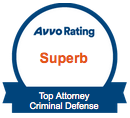Although trespassing may seem like a relatively straightforward concept, related laws have certain nuances and complexities that can be useful to know. Discover the various types and categories of trespassing and find out what you can do if you’re ever charged with trespass or criminal trespass in Texas.
How Does Trespassing Differ From Criminal Trespassing?
Trespassing, also called regular or civil trespassing, is the act of being on someone else’s property without their consent. It’s typically considered a misdemeanor if the person committing it doesn’t show any malicious intentions other than simply being on private property. Many trespassing cases occur when individuals accidentally enter someone else’s property. For instance, someone walking through natural landscapes may inadvertently enter a private area. If this happens to you and you can prove that you didn’t trespass intentionally, there’s usually a good chance that you’ll avoid any charges. An experienced lawyer can help you build your case.
Criminal trespassing, on the other hand, is a more serious offense. It usually applies to individuals who willingly enter private property despite clear indications that they’re not supposed to be there. There are five ways to notify someone that they’re not welcome on private property, and they’re as follows:
- A verbal or written statement given by the owner of the respective land or someone who represents the owner, such as an employee or guard.
- A type of obvious enclosure, such as a fence, that’s meant to either keep trespassers out or contain livestock.
- One or more signs placed in reasonably visible locations throughout the property borders that indicate entering the respective property is forbidden.
- Purple paint marks on trees and posts that are 100 feet apart at most on forest land and 1,000 feet apart at most on non-forest land.
- The respective land is used to grow various crops for human consumption, regardless of the specific harvesting stage the respective crops are in.
What Are Some Types of Criminal Trespassing?
The Texas Penal Code covers criminal trespassing in Section 30.05. It describes several types of trespassing, depending on the property involved and other aggravating factors. Some of them are as follows:
- Trespassing a habitation: The Penal Code describes a habitation as “a structure or vehicle that is adapted for the overnight accommodation of persons.” While trespassing charges are usually misdemeanors, they can escalate to a felony Charge if the person trespassing shows additional illegal intent, such as the intention to steal, harass, or intimidate lawful occupants.
- Trespassing a critical infrastructure facility: Some examples of critical infrastructure facilities under Texas law include chemical manufacturing facilities, refineries, electric power generating facilities, and gas processing plants, among others. Trespassing on such a facility can result in a class A misdemeanor, which is punishable by a fine and jail time.
- Trespassing agricultural land: Entering agricultural land without permission is also a form of criminal trespassing. The penalties involved usually depend on any potential aggravating factors, such as causing damage to crops or engaging in various other illegal activities.
What Are the Charges Associated With Criminal Trespassing in Texas?
Trespassing is a misdemeanor under Texas law, and the act can be classified under three categories. Those are:
- Class C misdemeanor: This usually applies if an individual comes within 100 feet or less of agricultural land or a protected freshwater area. The penalty consists of a fine of up to $500 if found guilty.
- Class B misdemeanor: Most trespassing situations fall under this class. The penalties vary depending on various factors, with the upper limits being $2,000 in fines and 180 days in prison.
- Class A misdemeanor: This applies in situations where various aggravating factors are present, such as the individual in question carrying a deadly weapon when trespassing or them being a repeat trespasser. The potential penalties are a fine of up to $4,000 and prison time for up to a year.
Frequently Asked Questions Regarding Criminal Trespassing in Texas
These are some frequently asked questions on the matter.
Does the Constitution’s First Amendment Protect Trespassers Exercising Their Freedom of Speech?
Freedom of speech can be a valid defense against trespassing charges in some situations. A typical example refers to people who are trespassing to protest peacefully. While this doesn’t always remove all charges, it can successfully reduce the class of misdemeanor. For instance, a person repeatedly trespassing on college campuses for peaceful protests can potentially use this defense to downgrade their misdemeanor class from A to B.
What Other Risks Are Involved With Criminal Trespassing?
Besides being prosecuted for it, the biggest risk associated with trespassing is that the property owner can take action to defend their land. The Texas Penal Code, section 9.41, mentions that a property owner can use force against trespassers if they have legitimate reasons to believe that it’s absolutely necessary. This includes the use of deadly force, particularly in situations where the trespasser is likely to commit other offenses, such as arson or robbery, or to prevent them from fleeing after committing those crimes.
Is Having a License To Carry a Firearm a Legitimate Defense Against a Class A Trespassing Charge?
Section 30.06 of the Texas Penal Code mentions that the trespasser still commits an offense despite having a license to carry a firearm if they don’t have specific consent from the property owner and the property has clear notifications that entry with a concealed handgun is prohibited.
Case J. Darwin Law Office Can Help You Defend Against Criminal Trespassing Charges
If you’ve been charged with trespassing in the state of Texas, you should consider hiring an attorney with specific experience in this area of the law. Even though it’s a misdemeanor, the situation can still result in severe fines and even jail time. Our attorneys can help protect your legal rights and formulate a successful defense that either clears you of any charges or downgrades the classification. Contact us at Case J. Darwin Law Office and let our team provide you with expert legal services.
Restricted Area sign at the cyclone fence by Kelli McClintock is licensed with Unsplash License





